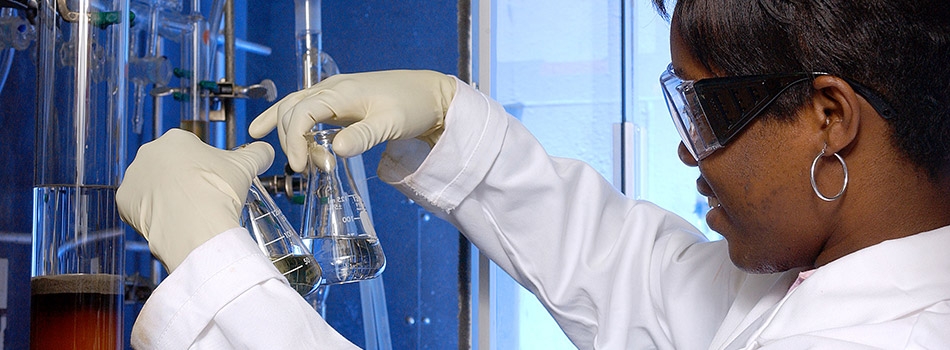
Notice
This website is for educational purposes only. Please refer to the Environmental Health and Safety Office for information about all applicable policies relating to environmental health and safety.
Because of the nature of the agents, chemicals, and organisms used, researchers need to be aware of the potential effects that their work can have on themselves, their colleagues, and the outside community. It is important to handle hazardous materials in as safe a manner as possible. This entails an obligation that faculty, students, technicians, and other researchers have to learn about appropriate safety procedures.
There are numerous ethical issues pertaining to laboratory safety and only a brief overview of a few key ones will be mentioned here. A crucial issue that researchers need to be aware of is how to dispose of laboratory materials properly. In general, it is inappropriate to dispose of hazardous materials in regular garbage cans. For instance, biomedical waste must be placed in specially designed receptacles. Further, there are many laboratory materials that should only be transported into and out of the laboratory by trained personnel. On a related note, it is highly likely that chemicals have to be transported in a specific, designated elevator instead of using a passenger one.
Another issue to consider is that researchers are not normally supposed to remove chemical or biological agents from the laboratory unless they have adhered to relevant institutional policies. In general, it is not appropriate, for example, to take hazardous materials out of the laboratory even if one wants to continue working. Also, researchers should always wear protective attire, such as goggles and gloves, when working with laboratory materials. Proper safety procedures must be followed.